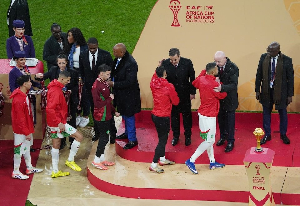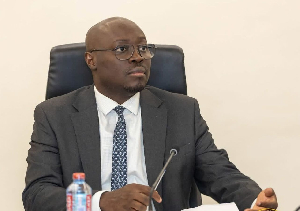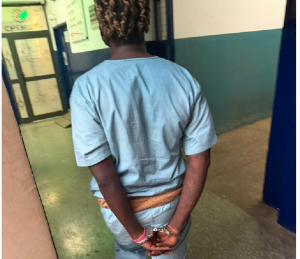Claim:
President of the World Bank has asked Ghana’s president, Nana Addo Dankwa Akufo-Addo, to stop borrowing and fix his country.
Verdict: MISLEADING
While the president of the World Bank had asked the government to hold down on non-concessional borrowing, he did not ask the government to “fix the country.”
Full Text:
A post shared by a popular Ghanaian blog, Ghana Celebrities, has gone viral on different social media platforms. In the post, the president of the World Bank is reported to have told the government of Ghana to stop borrowing and fix her country.

The post has generated so many comments and has been shared by one other popular Ghanaian blog, Aba_the_great1. At the time of going to press, the post had received 207 likes and seven comments.
Verification:
At a recent virtual Media Roundtable discussion by the World Bank for some journalists in Western and Central Africa, the president of the World Bank, David Malpas, made some observations about Ghana’s current status.
His comment was a response to a question posed by a Ghanaian journalist, George Wiafe, who sought his view on Ghana’s debt stock. Although Malpas had advised the government to hold down on borrowing as a result of future impacts, he did not wade into the #FixTheCountry campaign which has become a major topic in Ghana.
In the original news article regarding the issue by Myjoyonline.com, Mr Malpas was quoted as saying “holding down the non-concessional debt means higher interest rate debt because that burdens the further generations”, thus making the social media post misleading.
#FixIt Campaign and Misinformation in Ghana
Since the beginning of the #FixTheCountry, #FixTheCountryNow, #FixTheGhana campaign —a youth-led social media campaign in Ghana to demand accountability and development from political leaders— the tendency for social media users to share old photos and videos to pass them as new has become common, making the work of fact-checking organizations in Ghana very timely.
While Dubawa and other fact-checking organizations in Ghana are working to curb misinformation in this period as we do every day, it is important for social media users and media consumers to have knowledge of some digital tools that could be used to verify information that comes in the form of images and videos.
Dubawa has therefore put together some basic tools and tips for fact-checking images and videos. Familiarity with the tools and tips will enhance the ability to mitigate the spread of misleading information such as the one in this fact check.
General News of Thursday, 27 May 2021
Source: ghana.dubawa.org













